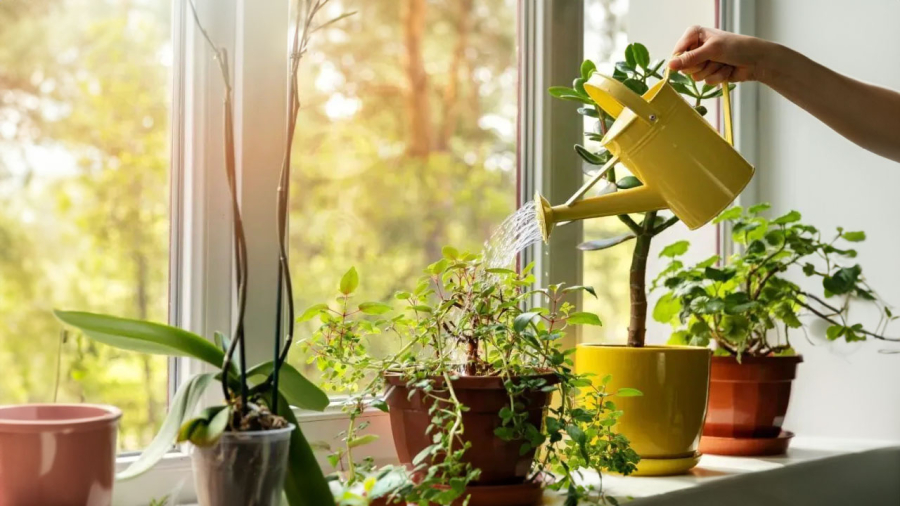Winter’s cold weather can cause leaves to turn yellow and fall off, especially during severe cold spells and frost. As winter weather can be harsh, your houseplants will struggle to survive if not cared for properly. So, keep in mind these tips:
Don’t repot or disturb the roots during cold weather
The roots, nestled in the soil, provide warmth to the plant. Disturbing the roots by repotting or digging near the base will expose them to the cold and potentially kill your plant.
In winter, plants enter a dormant state and cease active growth. If you disturb the root system or repot them, the roots may be damaged, and new root growth hindered, leading to leaf yellowing and potential plant death.

Bring your plants indoors to protect them from the cold
Move your plants indoors and provide warmth
Houseplants, unlike their wild counterparts, may not be acclimated to outdoor winter conditions. Therefore, it’s best to move them inside. If the temperature drops significantly, you can provide additional warmth, but avoid placing them too close to heaters or radiators, as this can dry out the plants. Artificial heat sources don’t provide the same benefits as natural sunlight, so avoid excessive heat and keep them away from the roots.
Pay attention to watering to avoid freezing damage
In winter, incorrect watering can exacerbate the effects of cold weather, especially during wet and rainy periods. Adjust your watering frequency and amount to suit the season. Check the dryness of the soil and consider the humidity levels before watering. Additionally, the best time to water plants in winter is during the warmer parts of the day, such as 9 am or 3-4 pm. Plants generally require less water during this season, and overwatering can lead to root rot and leaf yellowing.

Watering at the right time is crucial to avoid freezing temperatures
Be cautious with fertilizer
Reduce fertilizer application during winter, especially chemical fertilizers high in nitrogen, as these can cause root burn. Plants are dormant and require less nutrition. Overfeeding can overload the plant, disrupting its natural physiological processes. However, if your plant is budding and about to flower, you can continue fertilizing but in smaller amounts than you would in spring or summer.
Provide ample sunlight to boost your plant’s vitality
Winter often brings shorter days and less sunlight, which can weaken your plants. Ensure they get sufficient sunlight by moving them closer to windows or taking them outdoors on warmer days. Morning sunlight is ideal, but avoid placing them outside before the dew has burned off, as this can cause leaf damage and yellowing due to frost.
The Four Secrets to Success: Unlocking Wealth by Your Bedside
The art of bedroom feng shui is a powerful tool to attract positive energy and invite in wealth and prosperity. A well-arranged bedroom can create a harmonious and balanced space that not only promotes a good night’s sleep but also opens the door to abundance and success. By carefully positioning your furniture and incorporating symbolic elements, you can harness the power of feng shui to bring good fortune and a sense of well-being into your life.
“Grow This Fruit That Bears Large, Delicious, and Sweet Fruits with High Economic Value and Ease of Cultivation.”
This variety of fig tree is a quick-growing delight, ready to bear fruit within a year of planting. Whether potted or planted in a garden, it will produce an abundance of delicious figs for you and your family to enjoy. A truly special variety, these figs command a premium price, making them a valuable and tasty treat.



































